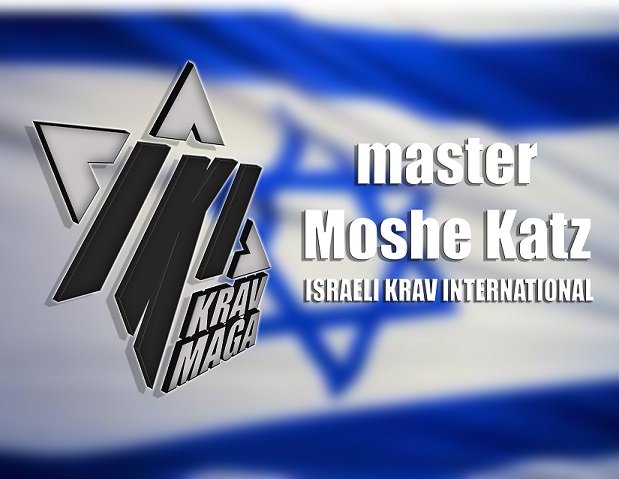- Home
- Krav Maga Blog
- Krav Instructors
- Train in Israel
- Tour Train Israel
- Krav Shop
- DVD
- Kickboxing
- IKI Near Me
- Seminars
- IKI Membership
- On-Line Training
- Krav Maga Training
- Testimonials
- History Krav Maga
- Instructors Page
- Past Blogs
- Spanish
- Italian
- Certification
- Contact
- Holland Seminar
- Vienna Seminar
- Poland Seminar
- Italy Seminar
- Belt Requirements
Sar HaMashkim
By Moshe Katz
CEO
Israeli Krav International
December 14, 2017, Israel
Weekly Torah reading - Miketz, Genesis/Bereshith Chapter 41
Yosef, Joseph, was falsely accused of inappropriate behavior with the wife of Potifar, an Egyptian officer, and as a result was sent to prison. Being that the powers that be knew he was not really guilty, but yet they could not challenge the wife of an officer and accuse her of lying, Joseph was placed in a special prison; "the place where the kings prisoners were held" (Genesis, chapter 39, verse 20)
Thus the honor of the wife of the officer was preserved.
Shortly afterwards two of the kings' ministers were placed in the same prison, the minister of bread production and "Sar HaMaskim" which is basically the minister in charge of controlling the national market. The scholars offer various reasons for the imprisonment of the Minister of the Market including that he was skimming off the top and manipulating the market in a dangerous way.
The minister of baked good production had also been accused of serious offenses. "Pharaoh was angry with his two ministers...and he placed them in confinement" (Chapter 40)
One morning Joseph notices that his two roommates are sweating bullets. Turns out they both had bad dreams and were deeply concerned. Joseph interpreted the dreams for them; one was doomed and one would soon be redeemed. And so it was "And behold on the third day, on Pharaoh's birthday, when he made a feast for all his officials, he counted the minister of Mashkim and the minister of bread production among his guests. He restored Sar HaMashkim to his position ...but the chief baker, on the other hand, he hanged. It was just as Joseph had interpreted for them." (Chapter 41, verses 20 22).
Earlier Joseph made a request of Sar HaMashkim, "I ask you to have me in mind when you enjoy your freedom and please do me a kindness, and mention me to Pharaoh, ask him to get me out of this house". (verse 14)
However the selfish self centered Sar HaMahkim did nothing of the sort, "And Sar HaMashkim did not remember Joseph, in fact he totally forgot him." (Chapter 40, verse 23)
Two years pass the Sar HaMashkim fails to honor the request of Joseph. Why? I offer two reasons; One, he simply did not care. Joseph served his purpose and is now history. Two, bringing up the case of Joseph necessitates bringing up his own unpleasant past of having been in prison. No one wants to mention their past criminal record.
And now the portion of "Miketz" begins (Chapter 41) with poor Joseph still in prison, bitterly disappointed by his betrayal. Not only was he falsely accused and placed in prison to protect the honor of the wife of Potifar,the Egyptian officer but he was abandoned by a man whom he had help in his time of need.
Two years later Pharaoh himself is troubled by bad dreams. These are not ordinary bad dreams, Pharaoh senses that they contain important national messages. He seeks council from his many advisors but is disappointed by their interpretations. He found them unrealistic.
Suddenly Sar HaMaskim reemerges, suddenly he remembers poor Joseph languishing in prison. Now he sees an opportunity for glory and self aggrandizement, now he is the man with connections. "I know a guy" he tells Pharaoh, I know a guy who can solve your problem.
Sar HaMashkim is essentially a user. He used Joseph when he needed him and dropped him as soon as his needs were met. Now he sees an opportunity to benefit from Joseph again. Pharaoh is desperate for a man who can interpret dreams, all have failed, but Sar HaMashkim "knows a guy".
But now is the awkward part; how does he mention Joseph without bringing up that "unfortunate episode". People will ask, how did you come to know a man in the prison? There is no way to mention Joseph without bringing up the fact that Sar HaMaskim "did time".
Sar HaMashkim says..."My transgressions I must mention today". Transgressions is in the plural, two transgressions, one against Pharaoh and one against Joseph for not bringing his case for pardon to Pharaoh, as he had promised Joseph.
But what happens next? Is there a true confession of guilt? is there an "owning" and taking responsibility for wrong doings and the consequences of one's actions?
No, there is the passing on of guilt, but there is also a hidden message.
Right after he says, "Today I shall confess my sins" he says..."Pharaoh was indignant against his servants, he was in a terrible mood and acted irrationally, and he threw me and the Minister of baked goods in prison".
What is he actually saying here? - I am not responsible, it was not my fault. Pharaoh was in a bad mood and threw a temper tantrum, it was against all his servants, not just me, and the Minister of baked goods was also caught in this mad episode.
The perennial cry of losers, someone else is to blame for all my misfortunes.
And now that he must bring up the story of Joseph, the great dream interpreter, he feels a need to put him down, belittle him. Even as he desperately needs Joseph once again to establish his importance to the king he still feels a need to belittle a great man.
"And there in the prison was a Na'ar (young man, not really a man yet), a Hebrew (i.e. a foreigner, not one of us, an outsider, an immigrant) a servant or slave (low class, unlike us) to the Minister of Captain of the Guard" (Chapter 41, versed 12)
But there is a hidden message here: When Sar HaMashkim, the Egyptian, says "My transgressions I am mentioning today" he actually is. He makes every attempt to sweep his transgressions under the carpet and place the blame on others. He makes every attempt to belittle others, Pharaoh as a man with anger issues, Joseph as a lowly foreigner, but he is actually true to his word: My transgressions I mention today.
By trying to shift the blame to others, by belittling others, by painting himself as flawless he is actually revealing his true nature and his true transgressions: Self centered, selfish, a user and a manipulator.
Sometimes our own words reveal our true nature.
By taking a new look at an old book, as my dear father would say, we can learn a great deal. I do not know when Pharaoh's birthday was but my father's birthday is coming up soon and I am grateful for the lessons he taught me.
the book:
Israel: A Nation of Warriors
Warrior lessons from the Bible

Biblical fighting methods and strategies.
Over 300 pages, the history of Israel and the Jewish people as a fighting nation from the days of Abraham to our own times. The book covers the history and roots of Krav Maga and the modern Israeli Defense Forces. The book analyzes what makes Israeli security the best in the world.
Why makes Israeli airline security the best in the world? What is the
Israeli approach and mentality that make us the leaders in the security
industry and personal safety field, and being sought after all over the
world?
The answers are in this book.
(cover by Arie Katz)
Israel, A Nation of Warriors, AmazonVisit our other site as well
Israeli Krav International.com
Krav Maga On Line Distance training - Direct from Israel
Find a teacher, world wide instructors
Krav Maga DVDs from Israel - Step by step, easy to follow.
